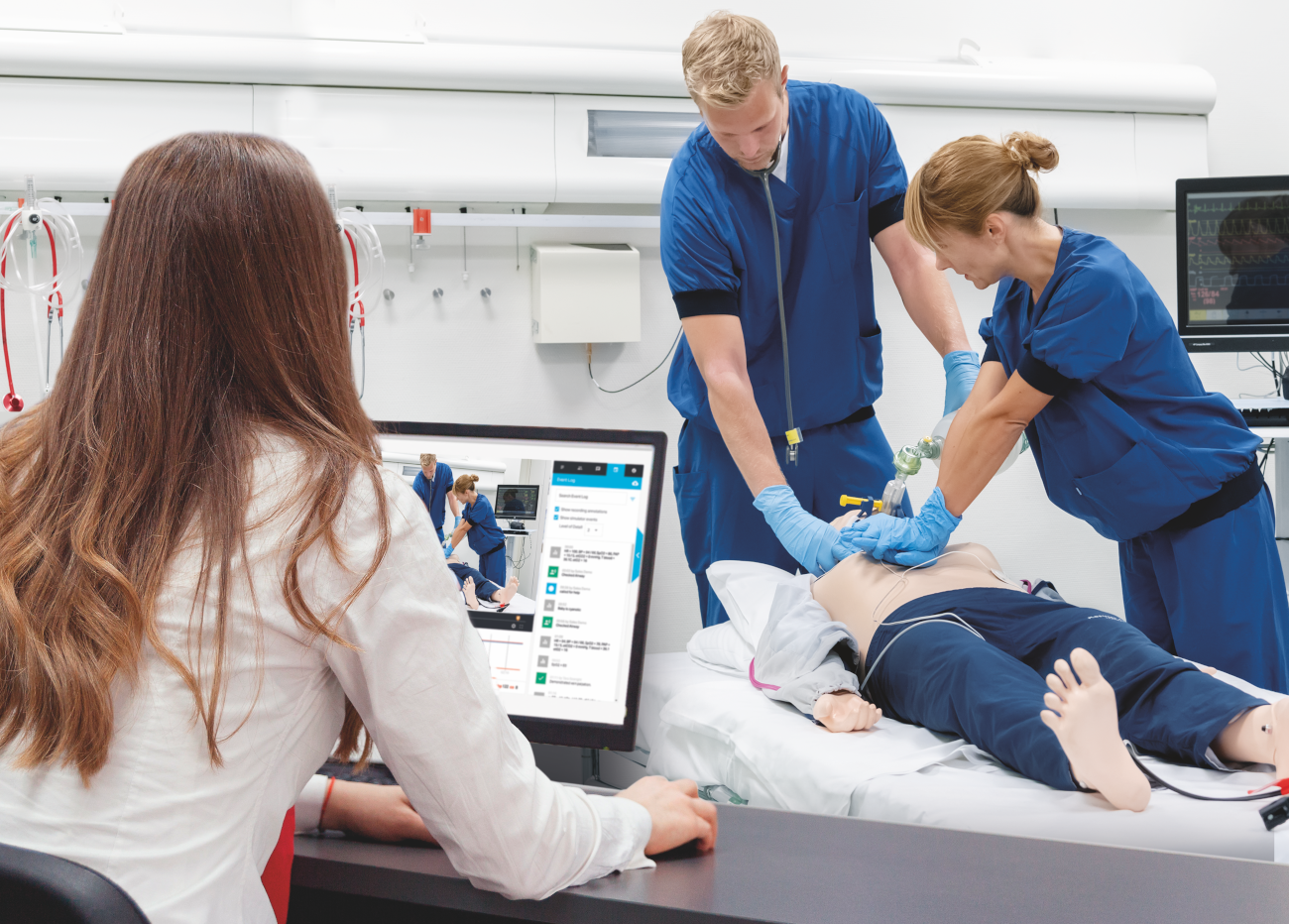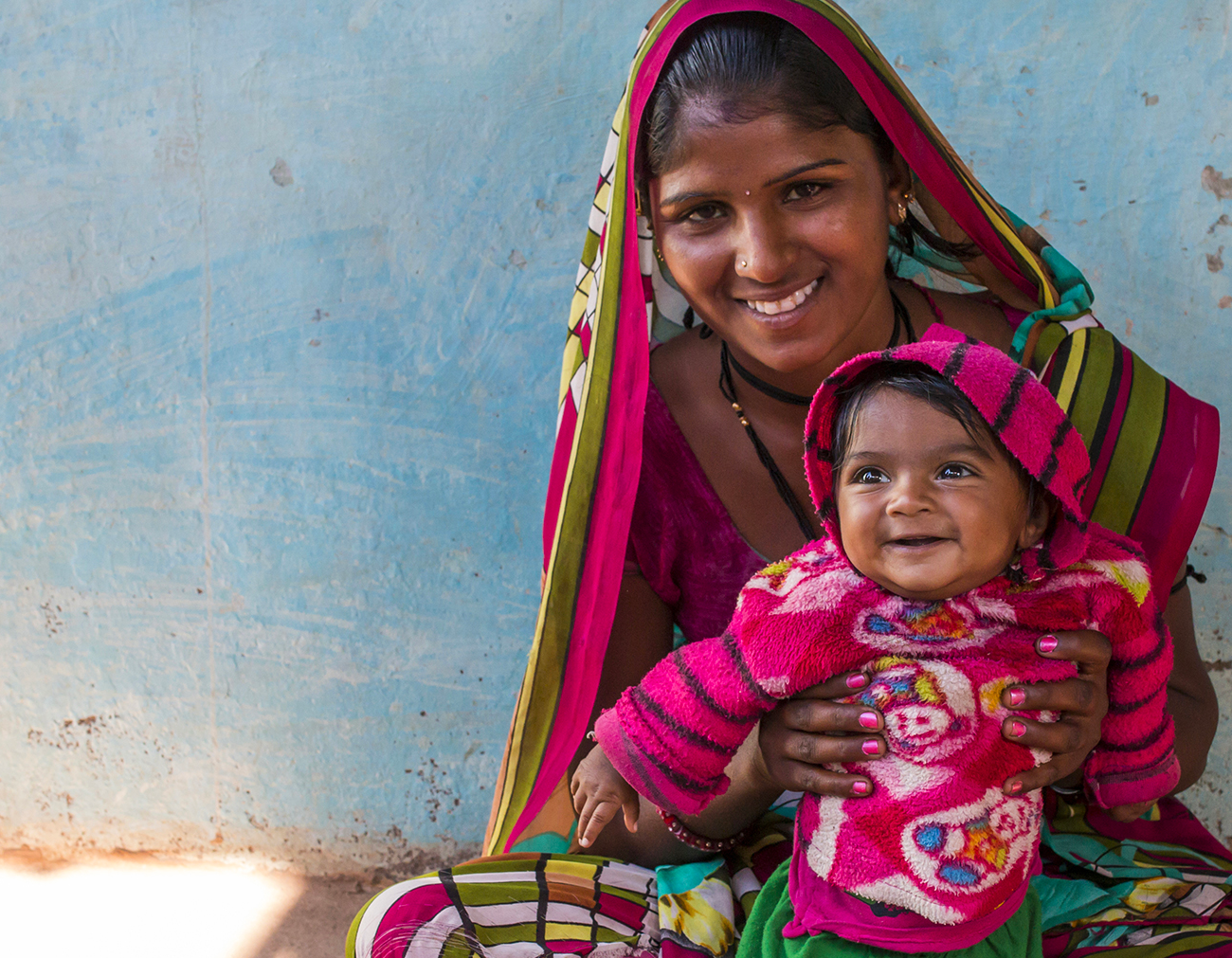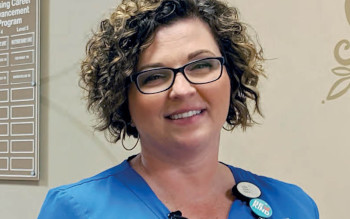One Million Lives
Laerdal’s ambition is to help save 1 million more lives. Every year. By 2030.
How We Get There

In the community
We believe early intervention and the activation of the Chain of Survival is critical to improve patient outcomes.
Sudden cardiac arrest in the community is still a major cause of death despite significant advances in prevention and therapy over the last 60 years. The visual metaphor for treatment of such cardiac arrests is called the Chain of Survival. We build tools to help train responders in each step in the chain from the bystander’s recognition of the emergency; calling for help and being coached by the dispatcher in applying CPR; high performance CPR and early defibrillation by first responders or Emergency Medical Technicians; further therapy and stabilisation by paramedics; and finally hospital care.
Learn more
Quality care in hospital
Simulation-based methodologies to enhance individual, team and system performance can improve patient safety and help save lives.
Medical errors are a leading cause of death worldwide. Poor quality of care is attributed to either poor initial training or failure to maintain competencies. A Lancet report in 2018 estimated that 8.6 million deaths per year in 137 low and middle-income countries (LMICs) were due to inadequate access to good-quality health care: 5.0 million were estimated to be due to poor-quality care and 3.6 million to non-utilisation of health care. To Err is Human, a landmark report in 1999, estimated that medical errors in US hospitals might be causing up to 100,000 unnecessary deaths each year in the US on.
Learn more
Birth in low-resource settings
Training and equipping birth attendants in quality birth care is one of the most important interventions to save more lives at birth.
Birth-related complications cost about 200,000 maternal lives each year. In most of these cases simple procedures will suffice to save both mother and baby – if the birth attendant is well trained and confident. Early detection and treatment of complications greatly improve the chances of a good outcome.
Learn moreOur Tools Their Story
Shelisha and Khalif’s Story |
Catrina’s Story |
Amsale's Story |
| The family had gathered for a barbecue at their London home in the UK. Shelisha was upstairs with her son, Shylio, when she heard a bloodcurdling scream and ran downstairs. Outside, her sister, brother and dad had found her nephew, Khalif, in the pond and pulled him out. The two-year old was lifeless. |
Catrina Brown was heading home from Texas Health Harris Methodist Hospital, South Worth, after a long day’s work, when she saw a motorcyclist had crashed and was lying unconscious by the side of the road. Another bystander called 911 and Catrina performed chest compressions until the ambulance arrived. |
Amsale's baby was not due for some weeks but she felt something was wrong and decided to go to the hospital. Amsale was already in labor when she arrived at the hospital. Bekele, an Ethopian midwife, noticed the fetal heart rate dropping. |
 |
||
| Having been trained in CPR at work, Shelisha immediately began chest compressions and rescue breathing. | “It really works,” she said. “When I came back to work, I told people two things: wear a helmet, and pay attention to CPR training." | Acting quickly he delivered the baby using a vacuum and the baby was not breathing but luckily I had been trained in what to do. This day of birth could have had a tragic ending instead it was a new beginning. |

We are hiring
Sometimes, technology really makes the world better
At Laerdal, we have set out a 2030 goal to help save one million more lives. Every year. By 2030.
Are you smart and motivated with strong foundational and technical knowledge? Do you see the big picture, even when you are working on the small details? Then maybe you are ready to take a step forward in your career.
Join our product team to build the most innovative web and mobile-based solutions on the market. Working for Laerdal Labs D.C. means you'll be working in a startup culture to improve the way the world delivers healthcare.
![]()
Fun and Flexible
We have a very fun, flexible, and relaxed environment. Our team owns the entire development process - from inception/design, platform development, product/app development, cloudOps, and pricing. We're engineering-driven from the top down and let our engineers "own" features they're working on and build them from top to bottom.
![]()
Compensation and benefits
While Laerdal Labs D.C. offers all the standard benefits and then some, its best benefits are more intangible. Work for a innovative and energetic team. Participate in monthly happy hours, company social events, and great volunteer causes. For those who enjoy working in the office, we cater a full daily breakfast and lunch.
![]()
Wellness benefits
We know you only perform as well as you feel. That’s why we offer a variety of health and wellness activities for keeping your body and mind in shape.
![]()
Work-life balance
We understand that a good work-life balance is essential to well-being. A family -friendly environment, a healthy workplace, community engagement opportunities, flexibility, among other initiatives contribute to the well-being of our employees.
![]()
Award-winning
Be a part of a place that is recognized for the work we do – from prestigious design awards to media recognition to the Business for Peace Award, Laerdal is proud of the recognition we receive. As a company, we emphasize a practical and blended approach to learning activities to best meet identified individual needs and strategic directions.

Modern Tech Stack
Our SimCapture Cloud solution is powered by the first fully cloud-based simulation LMS on the market. This multi-tenant, micro-service based architecture allows us to utilize the most modern of stacks, while being flexible enough to use the best tools and languages for each task.
![]()